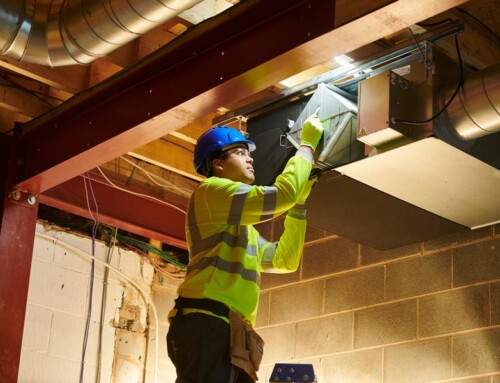A Door of Opportunity
Distribution has changed drastically in the last 30 years. So has the residential cleaning industry. These two industries have many common interests. Can the two help and benefit each other?
Cleaning has taken on an entirely new perspective due to COVID-19. People are scared. The public doesn’t know whom to rely on for information. Professional cleaners are the first line of defense. But now, this means more than the typical cleaning. The need for more is real. Education is a great way to turn a defense into an offense.
The impact of the distributor
Distributors have been adversely affected by the internet, online retailers, and big-box stores. Major players attempt to disintermediate or “cut out the middleman”—cleaning business distributors —and sell directly to cleaning contractors and consumers.
The premise is cleaning equipment and supplies are commodities and price is the primary driver.
In January 2018, Leah Waldrop, formerly of Afflink, wrote an article published on the ISSA website entitled The Evolving Jansan Distributor Model, which detailed the value of distributors. It made clear that distributors have much more value than a delivery business. The edge is the service beyond delivery. Being a partner with customers (cleaning contractors and providers) to create stable businesses, helping them deliver excellent service, is an antidote against disintermediation. How do we know?
The impact of the residential cleaner
The residential cleaning industry was faced with a similar situation and was successful in pushing back major efforts of disintermediation in its industry. How so? At first glance, the residential cleaning industry may look like it provides a commodity type service. The premise was that everyone can clean. The disintermediators believed scheduling and logistics were the major industry challenges.
A company called Homejoy deserves review because they modeled the business as a booking service, using an online platform that connected customers with home service providers, including residential cleaners. The missing link to success was the human element. The Homejoy investors and management did not initially value the craft of residential cleaning and the customer relationship. Investors closed the door after burning over $40 million. Their model prevented any real training directly to their cleaning technicians.
The IRS states subcontractors need to already be qualified to deliver the service. Uber qualifies their talent by having each state verify driving capability in the form of a license, driving record, and insurance. That was a fatal flaw for Homejoy.
Cleaning as a craft
To be clear, cleaning is a craft. It must be taught. Cleaning skills must be developed and refined. That includes customer service training for the residential cleaning technician. Commercial cleaning technicians usually don’t see the customer. This is not so with residential cleaning. Professionals in residential cleaning often become like family to customers. That relationship fosters loyalty.
Distributors have traditionally served the commercial indoor environment. The residential market has over 250 billion square feet of space.
The importance of working together
Have you ever looked in the cleaning aisle at the grocery store? Customers are lost. They have no idea what they are choosing. Some like the smell. Others are drawn to the “new and improved” or “cleans and disinfects in one step” slogans.
The residential cleaning industry is in a unique position to change this paradigm. Residential cleaning professionals are in millions of homes of people who have significant discretionary income, on a regular basis. These customers have influence. Many residential cleaning business owners are excellent candidates to speak to their customers and in their communities about cleaning. Many already do.
Distributors and residential cleaning businesses can flip disintermediation in the other direction. How?
It’s all about the end users—the residential cleaning customers. They are looking for direction and instruction about caring for their home. Home furnishings are the largest investment after the home itself. They want to protect that investment. More importantly, customers desire healthy indoor environments. Residential cleaning businesses provide that very service.
What if distributors positioned their model to support residential cleaning businesses in providing direction and expertise to their customers? Instead of customers purchasing cleaning supplies that they don’t really know much about, what if they had the residential cleaning business supply them? The residential cleaning business could teach the customer how to use them in between their visits and provide better service.
Some residential cleaning businesses like Clean My Space, founded by social media guru Melissa Maker, already do this. Residential cleaning businesses are not chemists or blenders and they need support. Distributors can help cleaning contractors deliver higher quality and generate more business with stronger margins.
Distributors typically have a venue for training and education. Some of that training needs to include what you need from your customers as a distributor. The best residential cleaning business models require or expect a home assessment, minimum service fee, full payment on terms, regular schedules, and an occasional interim cleaning service.
Benefits of a partnership
What would successfully flipping the disintermediation of cleaning homes and home cleaning supplies look like?
- Joint ARCSI/ISSA distributors ad hoc committee
- Establish one strong platform and message targeted to end users
- Deliver training to residential cleaning business owners and distributors
- Select, vet, and train residential cleaning business owners to speak using the same program/deck
- Incorporate a measurement matrix such as Hayward Score to prove the concept
- Open 2-3 areas and prove the concept over a finite period before expanding
- Open selected markets and build strong. Use as a tool to expand nationally/internationally.
The end result would be, not only the homeowner using and preferring products distributed by the cleaning industry, but the residential cleaning business would supply and replenish them. Residential cleaning businesses could also offer in-the-home training.
Eventually, online content could be available to the residential cleaning customer to watch at their convenience and for refreshers. When customers want to remodel, they will want to consult their residential cleaning service company. The customer will change for the better how they think and feel about cleaning and their cleaning professionals.
















